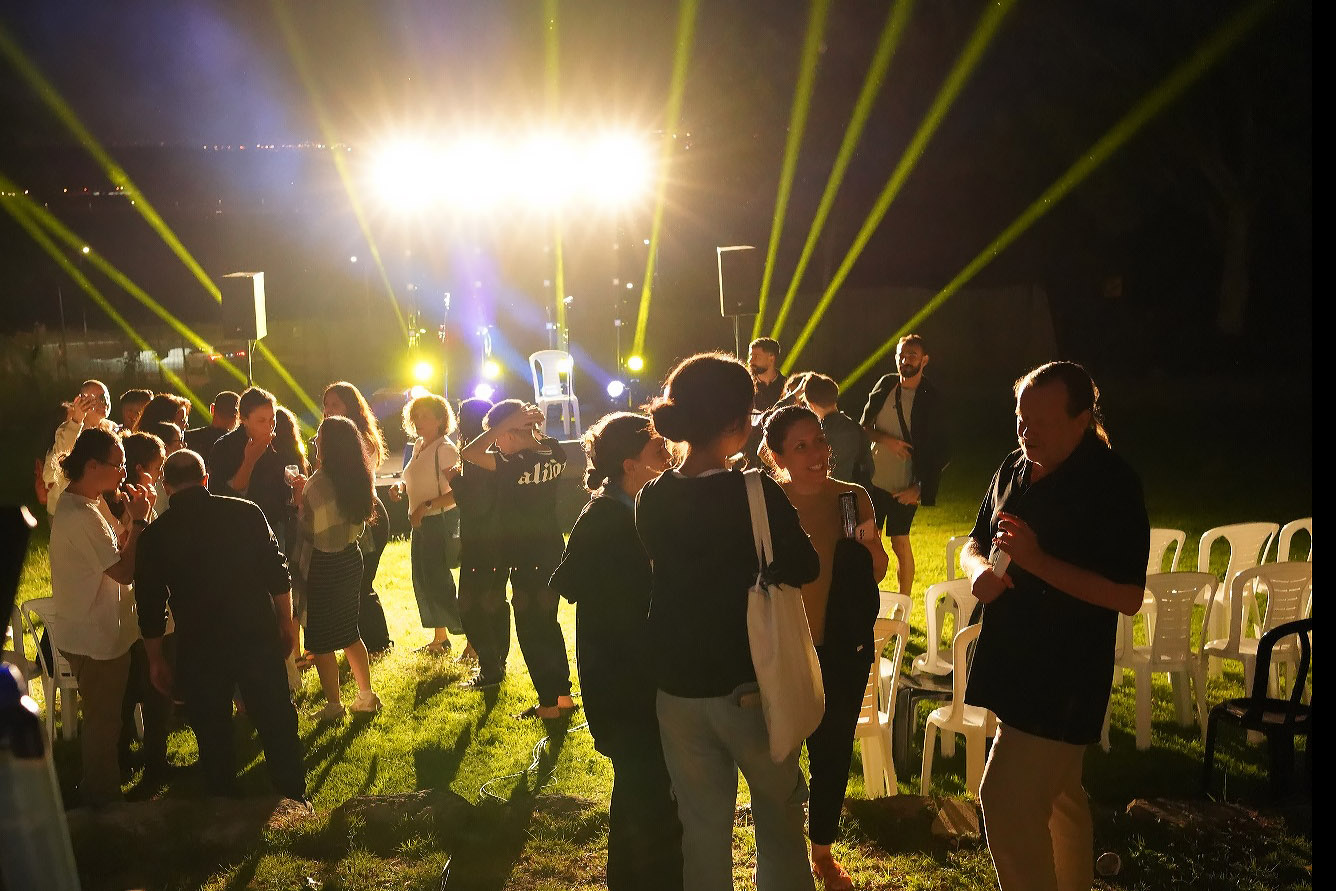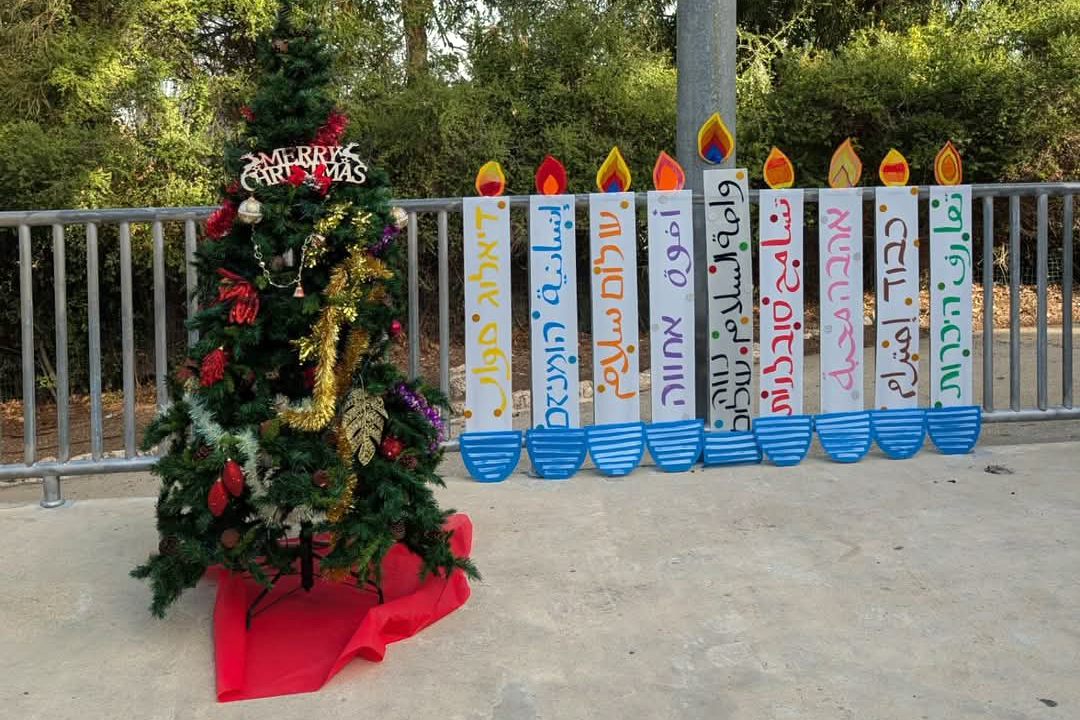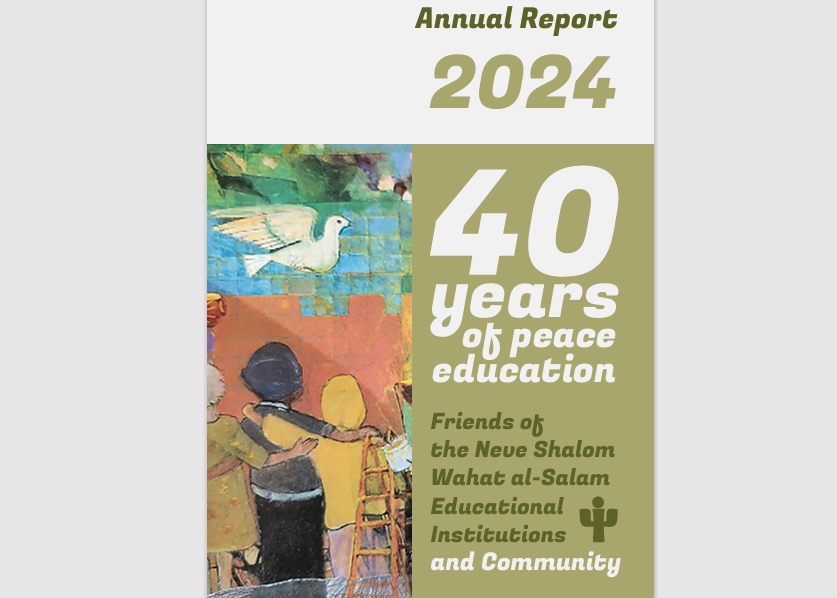Fires are a fact of life, here in Wahat al-Salam – Neve Shalom. Our beautiful village and educational campus are wooded, and the library building sits right across from the back entrance to the Eshtaol forest. Those trees give us life; our children learn from the forest around us about the relationships between plant, animal and human, as well as how to treat the forest and its denizens with respect. Despite the risk, we tend our trees and they provide us with shade, birdsong, beauty and air to breath.
But in a semi-arid climate with seasonal rains, fires are unavoidable. In a drought year with extreme climate events, forest fires can burn out of control, posing an immediate threat to our homes.
On April, 30, Memorial Day/Independence Day Eve, the school children were preparing for their ceremony, when a loudspeaker was heard ordering everyone in the village to evacuate. A fire had started burning in the area, and due to strong, hot dry winds, it was spreading quickly. The authorities were taking no chances.
The teachers knew what to do. They calmly walked the children out of the school, class by class. When the promised buses did not arrive, they packed their own cars with children and drove them to the neighboring village of Tal Shachar. The village safety committee went into action, making sure everyone present in the village was safely evacuated.

WASNS and neighboring Mesilat Zion were the first two villages to be evacuated that day, and the evacuations were immediate, without prior warning. The members of Tal Shachar generously offered their club room the village, providing food and helping as much as possible, including providing entertainment for the children as their parents anxiously watched the news. Across the county, Independence Day ceremonies were cancelled. Despite the fact that the fires were accidental, the symbolism was not lost on anyone.
Other communities were put on standby, some evacuated later as the flames burned out of control, so hot they leapt over a six-lane highway and left white ash in their wake. The monks in Latrun Abbey stayed put, helping firefighters where possible and sheltering in an underground wine cellar when the flames got too hot.
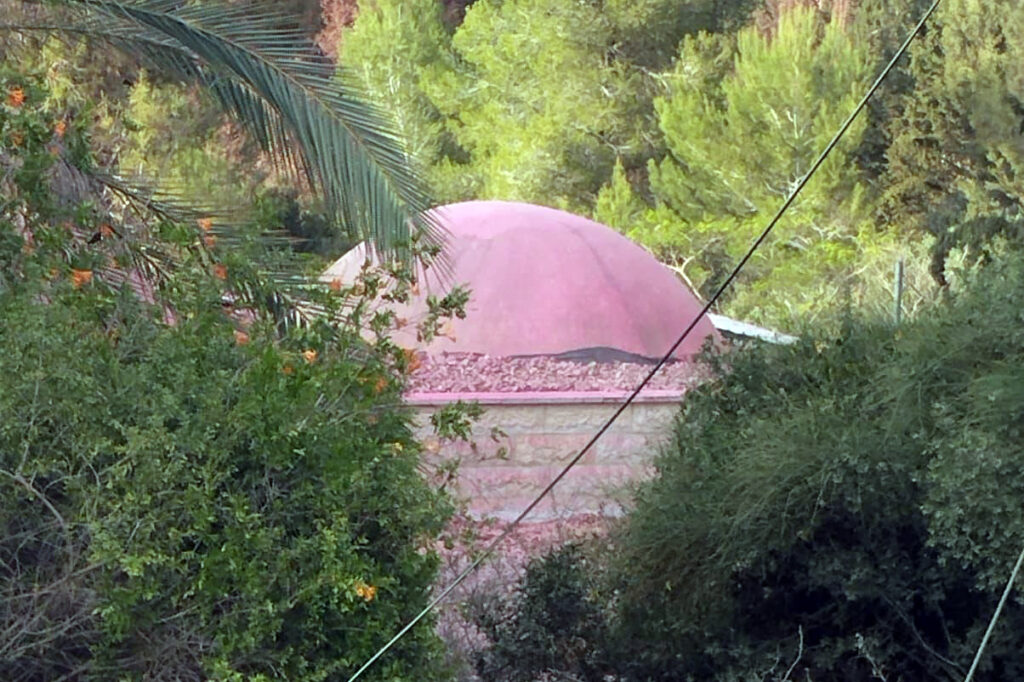
By the next morning, the firefighters told WASNS residents it was safe to go home. The fires that were still burning had moved along the Jerusalem highway, but they had been extinguished in the village and its surroundings.
Members returned to find their houses and property intact. “The fire stopped just a few meters from our house,” said Muhammad Abdelqader, whose family lives in the village. “It was a miracle.” The fire had left the cemetery blackened, as well as causing light damage to the Spiritual Center and its gardens. The dome of the Spiritual Center is now stained bright pink, a remnant of the fire retardants dropped from planes over the village.
Altogether, some 20,000 dunams (5,000 acres) of forest burned in the country in the 30 hours it took firefighters to gain control. It took us another day of vigilance, putting out smoldering embers and small fires. The village safety committee took on the task of ensuring any fires on or around the village were completely extinguished.
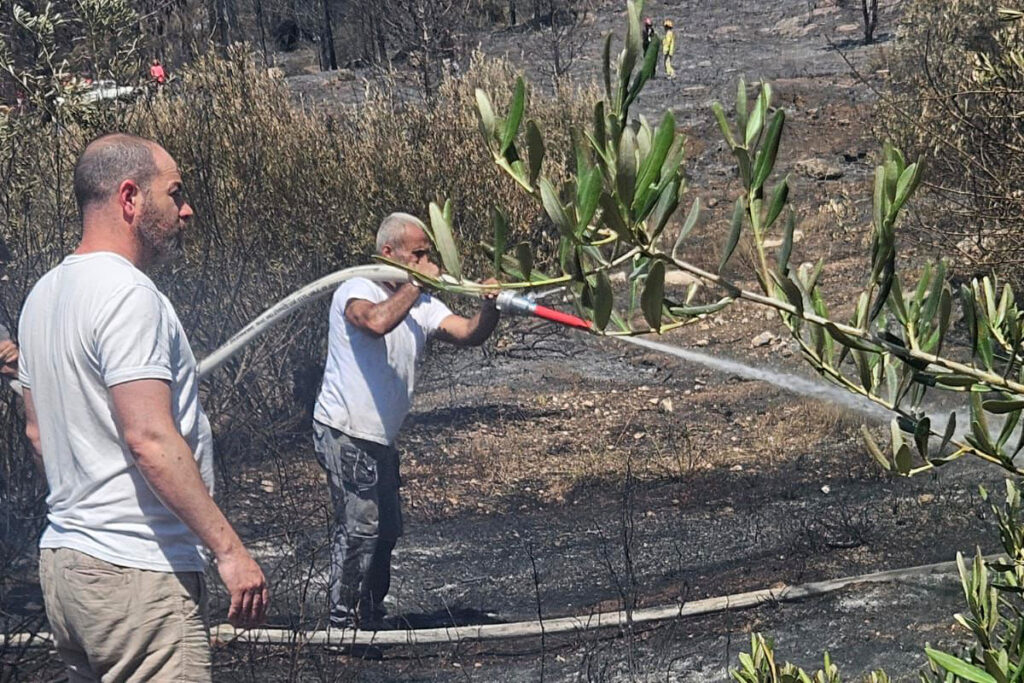
Village members checked on one another and on the monks of the abbey, and were relieved to hear that no lives were lost there, though a wine room and oil press were damaged.
The war still rages, sirens have already sent us to our shelters since we’ve been back in our homes. The burned areas remind us, among other things, that Nature does not discriminate between Muslims, Jews and Christians. We all love the forests on this land we share, and we all aid one another, regardless of ethnic group or religion, when nature turns against us, as it did for a short time that day.
On Sunday, it rained. For now, we are safe. The municipal society is currently reviewing its fire safety capabilities.


